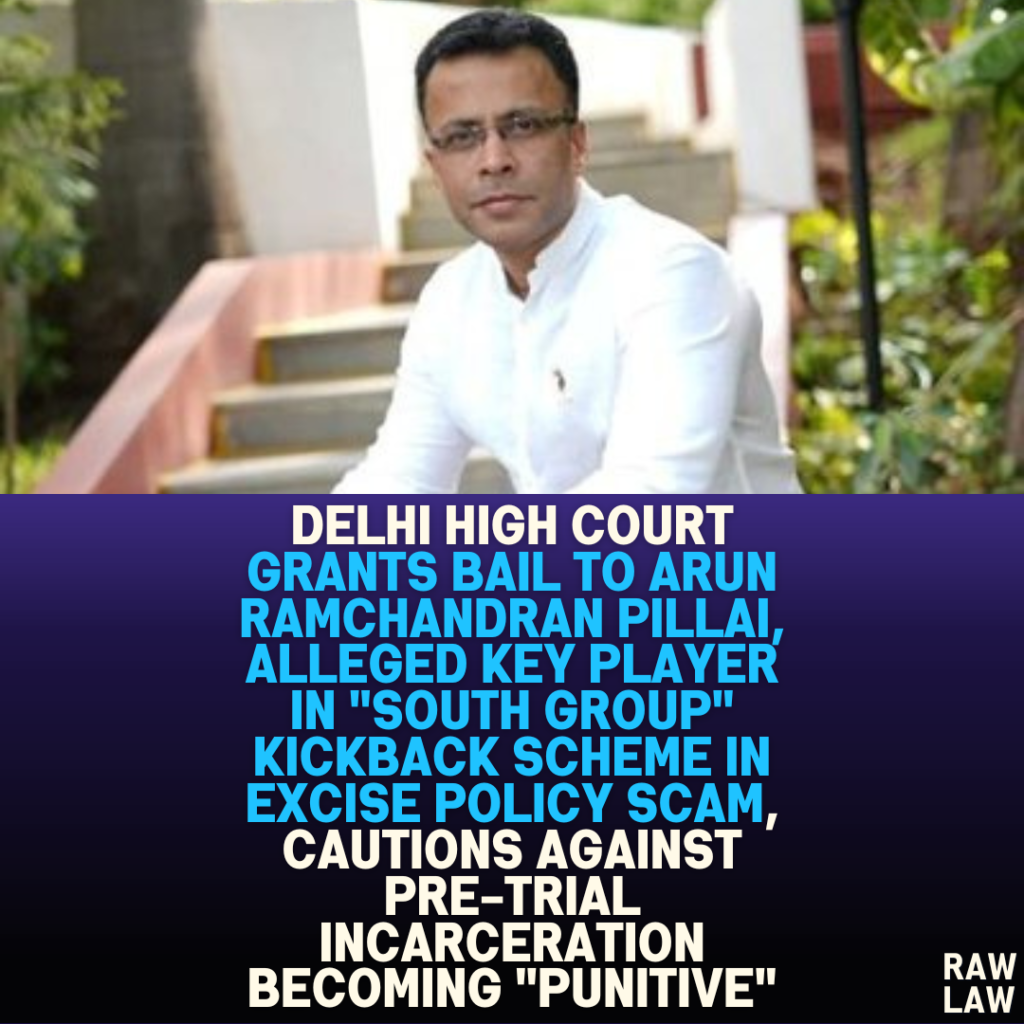Court’s Decision:
The Delhi High Court granted regular bail to Arun Ramchandran Pillai in the Delhi Excise Policy scam case. The Court found that the petitioner satisfied the conditions for bail, including the triple test of flight risk, tampering with evidence, and influencing witnesses.
Facts of the Case:
Arun Ramchandran Pillai, one of the accused in the Delhi Excise Policy scam, was arrested by the Enforcement Directorate (ED) in connection with alleged money laundering activities involving the formulation of the 2021-2022 excise policy. Pillai was part of the “South Group,” which allegedly conspired to provide kickbacks to government officials in exchange for policy favors.
The excise policy was introduced by the Government of NCT Delhi (GNCTD) to streamline the liquor business in the state, but it allegedly resulted in a loss of ₹2873 crores to the exchequer due to corruption and malpractice. The ED alleged that Pillai played a key role in organizing the financial transactions, including kickbacks amounting to ₹100 crores.
Issues:
The primary issue was whether the petitioner’s involvement in the excise policy scam, including his alleged handling of the proceeds of crime, justified the denial of bail under Section 45 of the PMLA Act, 2002.
Petitioner’s Arguments:
Pillai’s counsel argued that there was no concrete evidence to support the allegations of his involvement in the conspiracy.
The petitioner contended that he had cooperated fully with the investigation and that the statements made against him were weak and could not be relied upon.
The petitioner also claimed that he was not a flight risk, had deep roots in the society, and that his continued incarceration was unjustified given the voluminous nature of the evidence and the long duration of the trial.
Respondent’s Arguments:
The Enforcement Directorate (ED) opposed the bail application, arguing that Pillai was a key player in the excise policy scam.
The ED alleged that Pillai was responsible for orchestrating large financial kickbacks, which were used to secure policy favors for the South Group in the Delhi liquor market.
Court’s Analysis:
The Court noted that the investigation against the petitioner was largely based on documentary evidence, much of which had already been seized. The Court concluded that there was little risk of Pillai tampering with evidence or influencing witnesses. It also found that the prosecution’s reliance on statements made under Section 50 of the PMLA was insufficient to deny bail, as such statements required further corroboration.
Conclusion:
The Delhi High Court granted bail to Arun Ramchandran Pillai, subject to several conditions, including the surrender of his passport and regular reporting to the investigating officer.

Posted inNews


